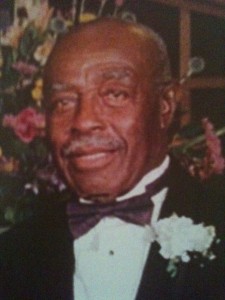What Do You Think? Wednesday
 Yesterday my family buried a prince of a man: Daniel Thomas, my grandfather who lived more than nine decades and had the wisdom to prove it. With his wit and few cents, he snagged and married my grandma, moved from LA (as he liked to call lower Alabama) to Michigan, made a living as a truck driver, sent two kids to school, and pulled enough resources to help dozens of others. He knew no no’s, gathered a bunch of yeses from well placed questions, other observations and a dazzling smile. He knew how to ingratiate himself to people and never let illiteracy or Jim Crow laws and attitudes stop him.
Yesterday my family buried a prince of a man: Daniel Thomas, my grandfather who lived more than nine decades and had the wisdom to prove it. With his wit and few cents, he snagged and married my grandma, moved from LA (as he liked to call lower Alabama) to Michigan, made a living as a truck driver, sent two kids to school, and pulled enough resources to help dozens of others. He knew no no’s, gathered a bunch of yeses from well placed questions, other observations and a dazzling smile. He knew how to ingratiate himself to people and never let illiteracy or Jim Crow laws and attitudes stop him.
He knew what to do.
He knew what to say.
He knew how to get over.
He knew the power of grace.
But love your enemies, and do good, and lend, expecting nothing in return, and your reward will be great, and you will be sons of the Most High, for he is kind to the ungrateful and the evil.—Luke 6:35.
He loved those who despised his skin color and the fact that he couldn’t read; he spent time and money to make so many comfortable and only expected that we would do for others, too. He was favored of God and man, for certain the son of the Most High, who is kind to ALL, even the ungrateful and evil ones. And if to the ungrateful and evil ones, even to our loved ones who don’t express to us love.
Granddad’s spirit still hangs over my cloud of unforgiveness toward those I expected to express their concern for me during my family’s bereavement. That spirit wants to clear the dark cloud that wants to rain revenge, to tell them “Forget you,” and never show an act of kindness again.
“… [D]o good, and lend, expecting nothing in return. . .”
This I must learn.
This I must do.
This is how to get over.
This displays the power of grace, a great testimony for a strong black woman in recovery.
How have you struggled with displaying grace to those who have wronged you? What lessons have you learned in the process?
Copyright 2011 by Rhonda J. Smith
